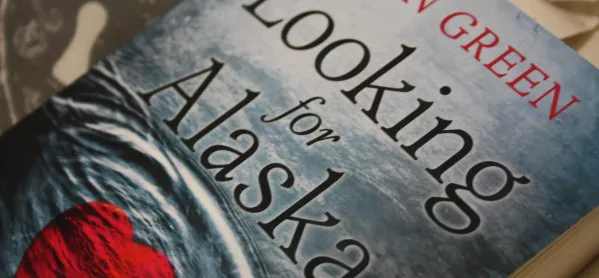In response to Joe Nutt’s article “Why young adult fiction is a dangerous fantasy” (19 August 2016):
I’ve drafted an outline for a successful comment article. It features patronising stereotypes of young people who have, it seems, no free will to choose what we want to read. Apparently, we are slaves to the monolith of youth culture, forced to consume the putrescent sludge that spews from the sewer pipe of teen fiction authors that now infest the shelves of Waterstones - like plague rats. Oh, for the days when all anyone was reading was Jane Austen and Arthur Conan Doyle. People were far more civilised then, right?
Well, no, actually.
In his article, Mr Nutt misses the point of young adult (YA) fiction and does so spectacularly. He plainly does not understand the intrinsic value it holds within its cheap paperback pages for so many people (not just young people, either).
I agree, Joe, that the classics are brilliant. The best books I have read in the past year (A Clockwork Orange and Fahrenheit 451, if anyone’s interested) are counted among them. But unfortunately, since we do not live in your fantasy world, not everyone is going to be intrinsically motivated casually to pick up Great Expectations or Pride and Prejudice.
‘Sparking a love of reading’
Teen fiction provides an essential bridge for those people who might not ordinarily read at all without it. Getting people excited about literature is impossible if they’re not reading, and it’s through young adult fiction books like the Twilight series you so flippantly lament that a spark of enthusiasm meets the powder-keg of engagement.
No one would be reading the non-fiction books you rightly hold dear at all if they didn’t, from somewhere, find a gateway into the literary world. And if we help them find that gateway - even through werewolf romance - it would be worth it.
I’d also like to politely enquire about the titles of the YA fiction you’ve read in the past year, Mr Nutt. I’d wager my dad’s mortgage that your list numbers fewer than five books. Those authors you hate for their “petty anxieties” might have a word or two to say about that caricature.
The few books that have genuinely moved me to tears in the past couple of years have been teen fiction. One of those, John Green’s Looking for Alaska, nails an underlying metaphor based on the last words of Simon Bolivar, the South American revolutionary leader, (“Damn it, how will I ever get out of this labyrinth?”) sublimely. That doesn’t quite fit into your choking pigeonhole, does it?
Teen fiction can be and is done well in most of the novels I have read. It might not be Gatsby, but it’s certainly more substantial than gossip magazines.
It also might not be a good idea to make fun of people who have autism, who are transgender or who self-harm. Those people need compassion and understanding, not your self-righteous platitudes. Especially since your article was published in a national journal.
Oh, and one more thing. Ever heard of a little principle called freedom of choice? I’ll read what I damn well want, thanks, Joe. And so will the rest of us.
Will Allsopp, 16, is a pupil at King Edward VI School in Bury St Edmunds
Want to keep up with the latest education news and opinion? Follow TES on Twitter and like TES on Facebook
